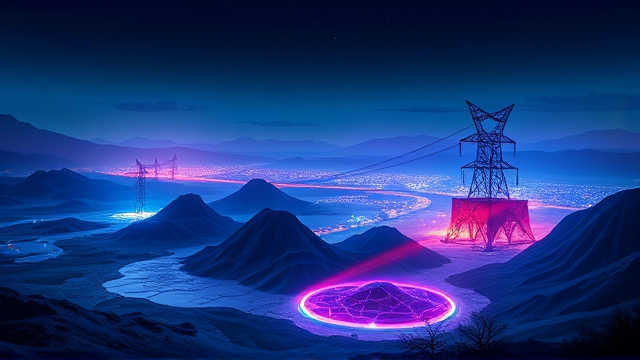Geothermal Power Is Africa's Optimal Energy Solution.
In the grand, unfolding narrative of Africa's energy future, a quiet but profound struggle is taking place, one that pits the seductive allure of quick-fix solutions against the deep, enduring power of the continent's own geological heartbeat. On one side stand the dams and solar farms, projects that easily attract donor money and offer the kind of immediately visible victories that politicians crave, their ribbons cut against a backdrop of international applause.Yet, this pursuit of rapid gratification overlooks a far more resilient contender lying in wait beneath the volcanic landscapes of the Great Rift Valley: geothermal energy. While its development is admittedly a protracted process, demanding significant risk-tolerant finance and a patience that transcends electoral cycles, its potential payoff represents nothing less than a paradigm shift towards energy sovereignty.For Africa, geothermal is not merely an alternative; it is the key to unlocking more secure, sustainable, and genuinely affordable power for generations. The challenge is fundamentally ecological in nature, not just in terms of low emissions, but in the very philosophy of resource use.Dams, for all their promised megawatts, can devastate river ecosystems, displace communities, and render vast tracts of land uninhabitable, their environmental debt accumulating silently long after the inaugural generators hum to life. Solar farms, while cleaner, impose a different kind of footprint, claiming large swathes of land and remaining subject to the whims of weather and diurnal cycles, thus perpetuating a reliance on backup systems that often run on fossil fuels.Geothermal, by contrast, is a constant, baseload force, tapping into the immense, simmering energy of the Earth's core to provide uninterrupted power, rain or shine, day and night. This reliability is the bedrock of modern economic development and climate resilience.Consider the pioneering success of Kenya, which now derives nearly half of its electricity from geothermal sources, primarily from the Hell's Gate complex, a place of stunning natural beauty that now powers millions of homes without scarring the landscape or polluting the air. This was not an overnight achievement.It was the result of decades of dedicated exploration, investment, and technological perseverance, a testament to a long-term vision that saw beyond the horizon of the next news cycle. The initial phases are indeed capital-intensive and fraught with geological uncertainty—drilling exploratory wells is a high-stakes gamble—but once a viable reservoir is confirmed, the resource can provide clean power for 50 years or more, with operating costs that become astonishingly low over time.This creates a virtuous cycle: stable, cheap electricity attracts industrial investment, fosters innovation, and funds public services, all while insulating national economies from the volatile price shocks of imported fossil fuels. The obstacle, then, is not technological but financial and political.The global aid architecture is often structured around discrete, time-bound projects with easily measurable outputs, a model that aligns perfectly with constructing a visible solar array but is ill-suited to the slow, meticulous work of subsurface mapping and drilling. What is required is a recalibration of both international finance and domestic policy to de-risk these crucial early stages, perhaps through blended finance models or dedicated geothermal development funds that treat this initial investment not as a cost, but as a down payment on a sovereign energy asset.The nations sitting atop this immense geothermal potential, from Ethiopia to Tanzania, are custodians of a resource that could empower them to write their own energy destiny, free from the constraints of external fuel markets and the fleeting priorities of donor agendas. To choose the path of geothermal is to make a commitment to the future itself, to invest in the deep, steady rhythm of the Earth rather than the fleeting flash of a political photo opportunity. It is the ultimate act of ecological and economic wisdom, ensuring that Africa's development is powered not by the whims of the outside world, but by the enduring fire within.
Latest News
In a development that feels as monumental as the first time humanity grasped the orbital mechanics that would one day take us to Mars, a cadre of international
3 hours ago0 comments
In the grand, unfolding narrative of Africa's energy future, a quiet but profound struggle is taking place, one that pits the seductive allure of quick-fix
4 hours ago1 comments
The persistent longevity gap between the sexes, a phenomenon observed not just in our own species but across a remarkable spectrum of mammalian life, from the
6 hours ago2 comments
The skies above Hong Kong performed a spectacular act of atmospheric theater earlier this month, presenting residents of Tsing Yi with a vision so ethereal it
11 hours ago4 comments
In a landmark study emerging from Spain, a nuanced and more intelligent iteration of the celebrated Mediterranean diet has demonstrated a staggering 31%
12 hours ago5 comments
It’s a quiet truth, one that emerges not in the stark light of a clinic but in the whispered confessions of daily life: the weight of depression isn't a
12 hours ago3 comments
For decades, the very first moment of photosynthesis—the miraculous process that powers nearly all life on Earth—has held a secret, a fundamental asymmetry
13 hours ago2 comments
The very ground beneath California, long accepted as a precarious but predictable neighbor, is now revealing a more volatile and terrifying personality.
13 hours ago4 comments
It’s quiet here...Start the conversation by leaving the first comment.
